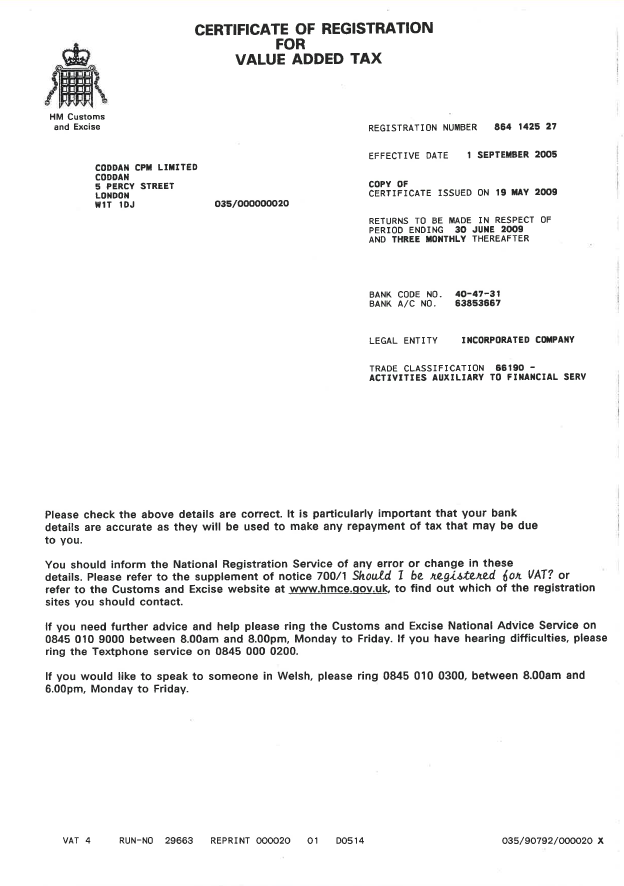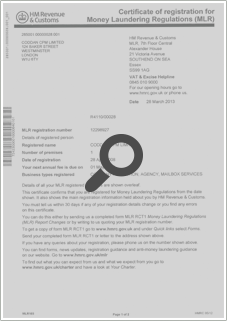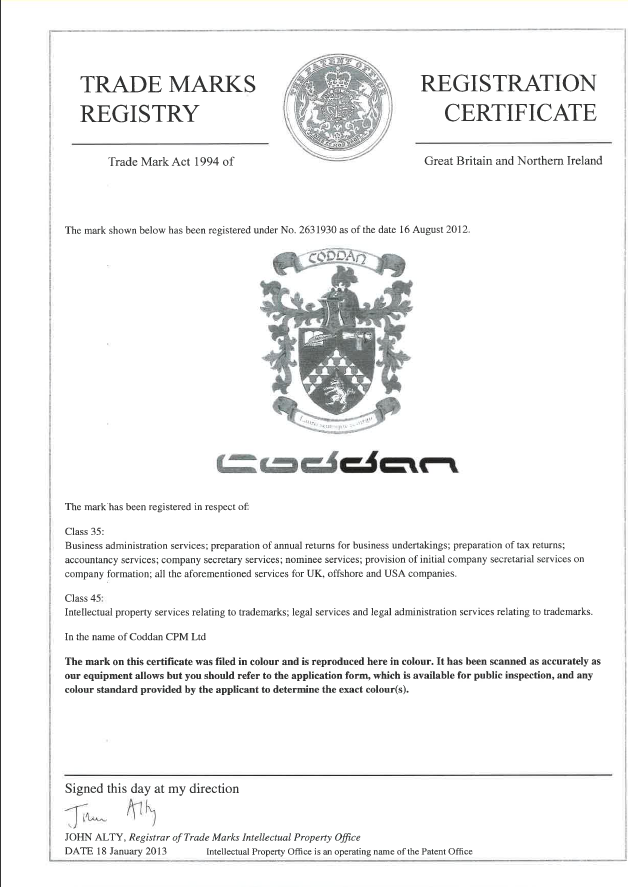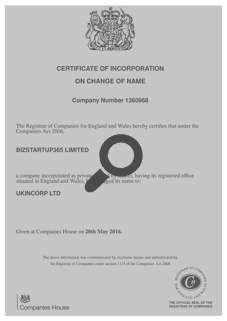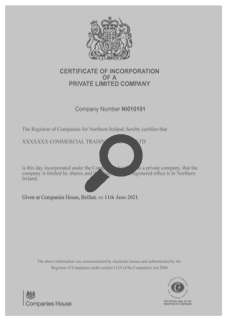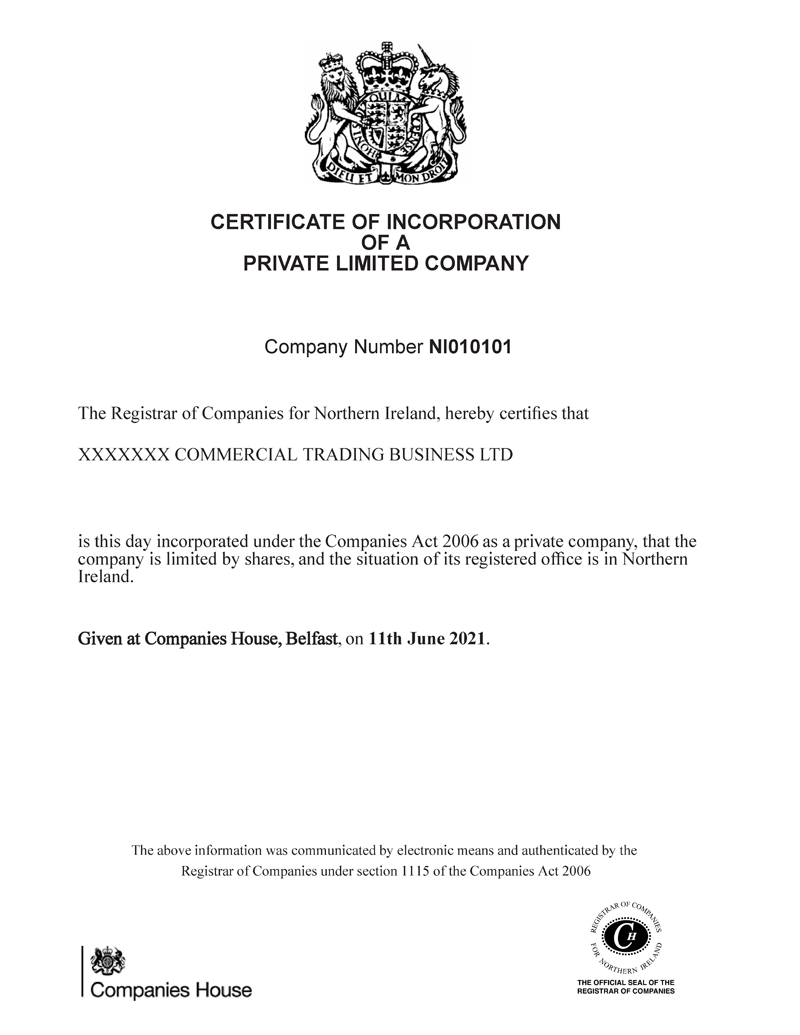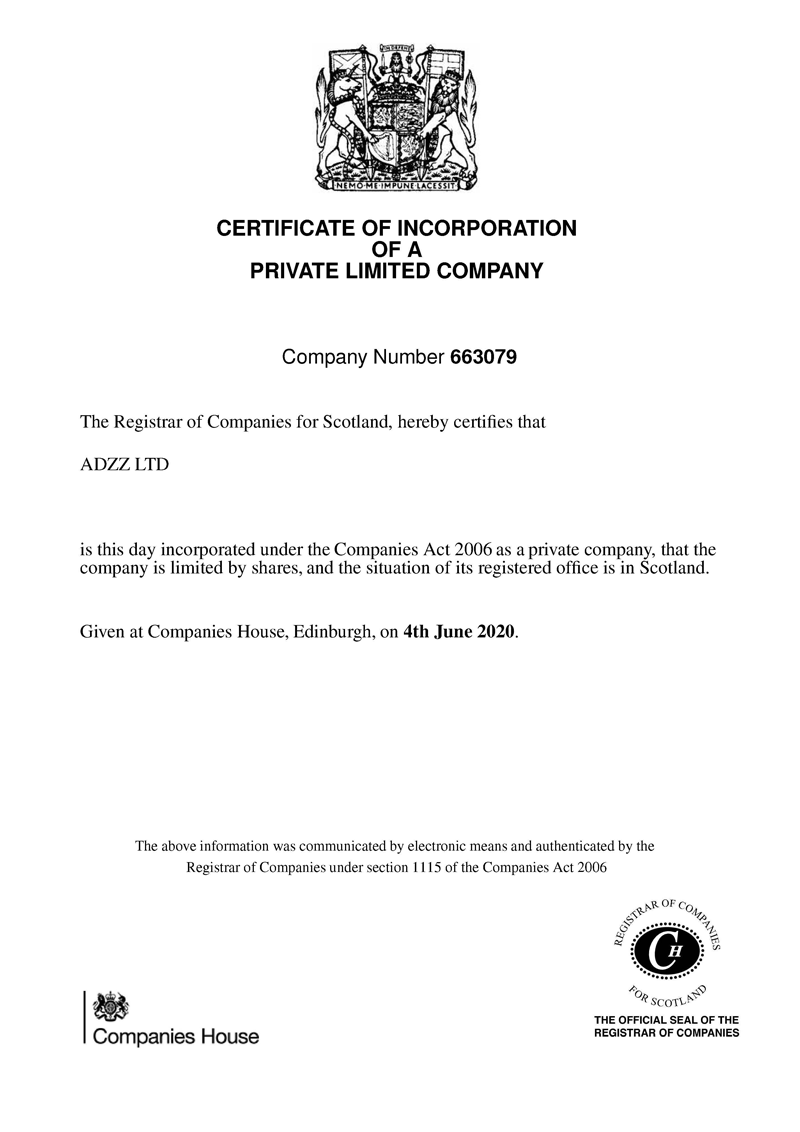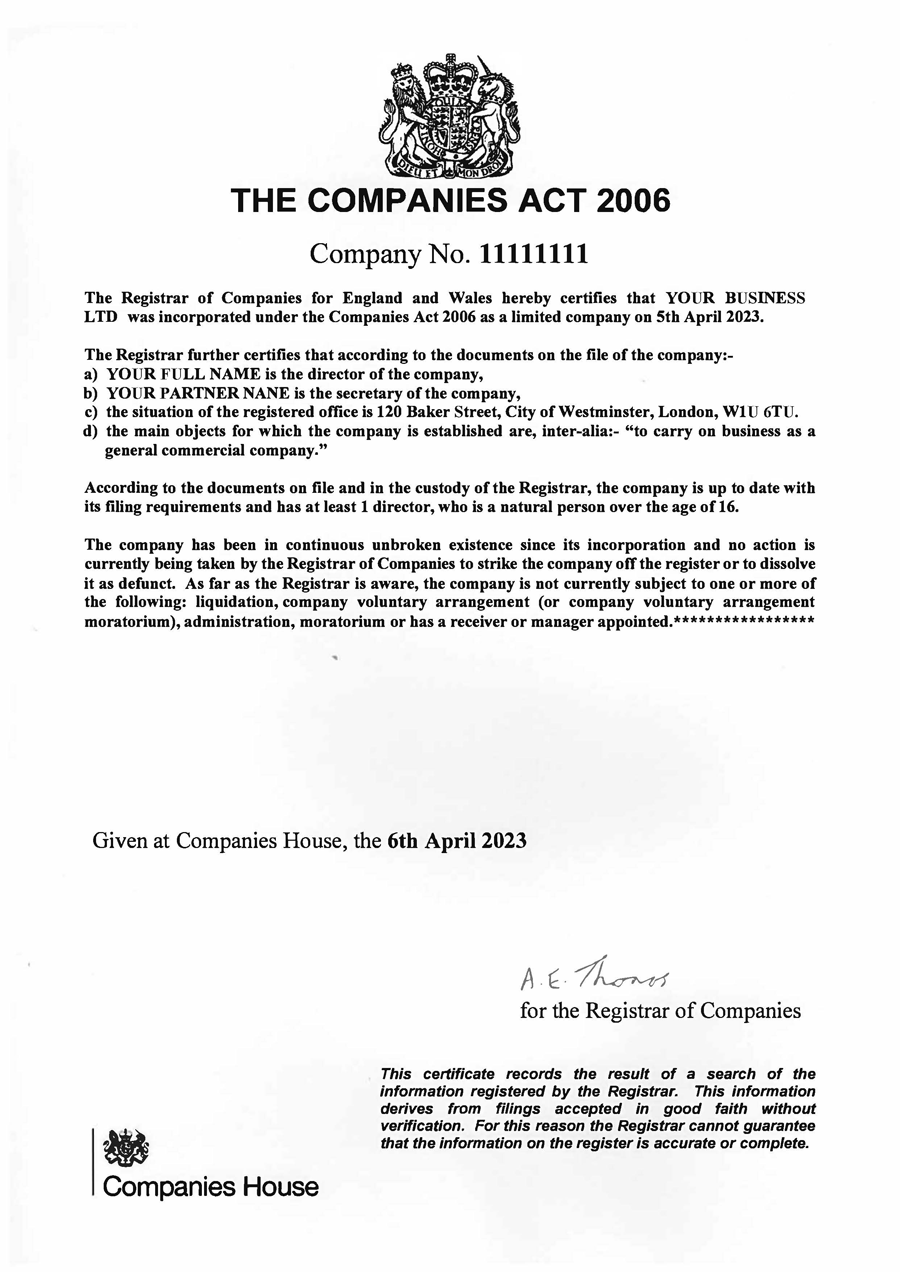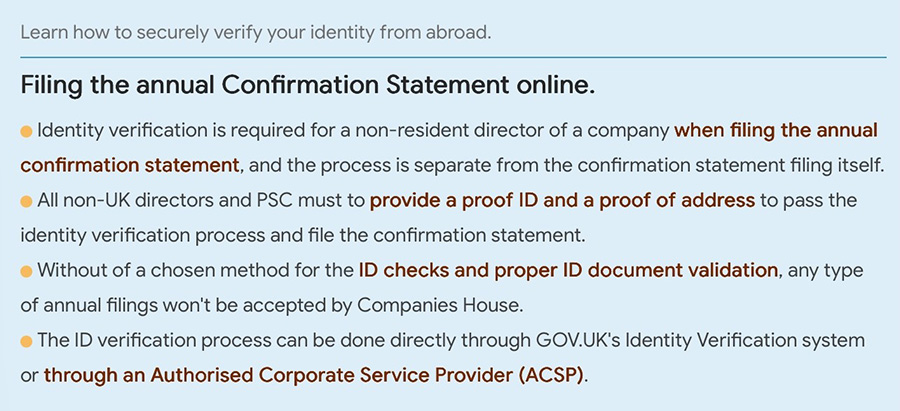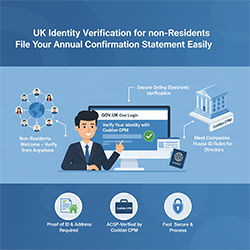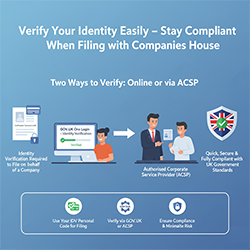Making Identity Verification Simple, Secure and Reliable.
There are 2 ways to verify your ID: directly with Companies House via GOV.UK One Login account or through an Authorised Corporate Service Provider (ACSP).
Learn how to securely and flexibly verify your identity from abroad with easy online steps for non-residents provided by the GOV.UK via approved ACSP.
- Learn how to effectively confirm and proof your identity from abroad with first-class ID cheks support and services for non-residents and applicants within 24 hours.
- Non-UK residents must confirm they have verified their identity; they are legally obliged to provide proof of ID and address before filing a confirmation statement.
- All company directors and people with significant control, whether they are UK residents or non-residents, will have to verify their identity to prove who they are.
- All company directors and PSCs, whether based in the UK or overseas, must verify their identity; find out how to navigate this essential process effectively.
- Learn how to verify your identity for Companies House effortlessly through the GOV.UK One Login app or the reliable ACSP website to start your registration today.
- Your identity can be simply verified through the Companies House website using our trusted ACSP, which is user-friendly, hassle-free and relatively quick.
- Our ID verification process is straightforward and can be easily completed through a Companies House-approved and certified ACSP provider in the UK.
- All company directors will need to have verified their identities before filing their annual confirmation statement and before the official deadline.
- All existing directors and people with significant control must confirm they have verified their identity before filing their annual confirmation statement.
- All non-UK residents must provide proof of identity and a proof of address when filing a mandatory annual confirmation statement from abroad.

















 9.30 am – 6.00 pm GMT
9.30 am – 6.00 pm GMT Monday-Friday
Monday-Friday info@coddan.co.uk
info@coddan.co.uk


